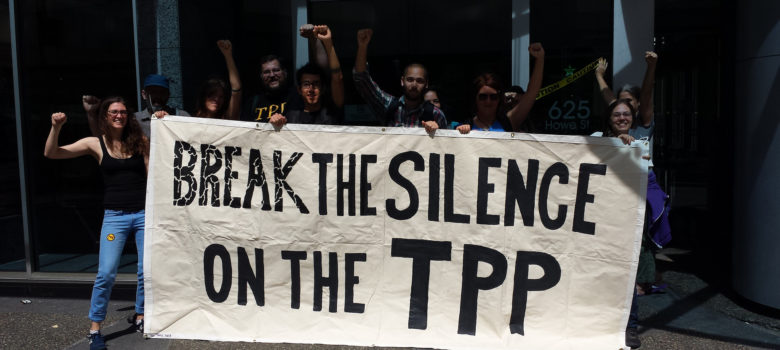While the NAFTA negotiations in Montreal were expected to be the lead trade story this week, the Trans Pacific Partnership talks in Tokyo have stolen the show with the remaining 11 countries reaching agreement on a deal that is likely to be signed in March. Canada faced intense criticism last year from some TPP partners (particularly Japan and Australia) over its demands to address concerns with the agreement. That sparked some Canadian business groups to quickly call on the government to simply cave in order to conclude a deal. Global Affairs Minister Chrystia Freeland and International Trade Minister François-Philippe Champagne rightly argued that capitulation is not a negotiating strategy and they now come away with an improved (albeit still flawed) agreement.
As I noted last year, from a strategic perspective, Canada was a late entrant to the TPP negotiations, arriving well after the basic framework had been established and several of the chapters concluded. In fact, the TPP only became a trade priority after the Harper government identified the risks of remaining on the outside of a deal that included the U.S. The decision to participate was primarily defensive with some studies projecting only marginal economic gains. With the U.S. now out of the TPP, Canada’s primary strategic objective was gone. That left a deal that offered some benefits for increased trade with Japan, but little else given that Canada already has free trade agreements with several other TPP countries such as Mexico, Chile, and Peru.
Japan emerged in recent months as the TPP’s biggest proponent and worked hard to bring the remaining countries on board. Canada took the lead on seeking amendments the TPP’s deeply problematic intellectual property chapter, where the original agreement included patent provisions that would likely increase the cost of pharmaceuticals and copyright rules that would lock down content for decades through the extension of the term of copyright beyond the standard established at international law. Indeed, the IP chapter largely reflected U.S. demands and with its exit from the TPP, an overhaul that more closely aligns the agreement to international standards was needed. Canada succeeded on that front with an agreement to suspend most of the controversial IP provisions including those involving copyright term, patent extension, biologics protection, and digital lock rules.
Despite claims from TPP supporters that the cultural exemption did not raise concerns, the Canadian government rightly concluded that the TPP provision fell far short of the standard found in other trade agreements. The culture carve outs arose from U.S. demands. With it out of the agreement, the real question was never whether the provisions could be addressed, but rather how to do so. The fix will apparently come through side letters between Canada and the remaining TPP countries, which will keep the text intact but give Canada the exemption it wanted.
The end result is an agreement that still raises concerns – the e-commerce chapter does a poor job of protecting privacy and balancing data localization requirements – but one that is improved from earlier iterations. Taking any deal over a good deal never made any sense and today’s result affirms that caving to foreign pressures is not a viable strategy as Canadian negotiators should not shy away from asserting strong demands in the national interest.








Pingback: When Consultations Count: Why the TPP is a Reminder of the Value of Speaking Out - Michael Geist
I was just reading about TPP and immediately wondered about the IP considerations. Thank you for commenting on the situation.
Pingback: A Glimpse of a Canadian-Led International Order — Реальный бизнес
Pingback: Don't Make the TPP Mistake Again: Why Canada Needs to Maintain a Progressive Approach on IP in NAFTA - Michael Geist
Pingback: #Canada Successfully Stands Up For Balanced IP and Canadian #Cultur… | Dr. Roy Schestowitz (罗伊)
Pingback: Does the New TPP Deal Solve the Copyright Imbalance?
Pingback: Szabadkereskedelem és szerzői jog #1.2 – COPY21
I have checked your blog and i have found some duplicate content, that’s why you don’t rank
high in google’s search results, but there is a tool that
can help you to create 100% unique content, search
for; boorfe’s tips unlimited content
Pingback: Broken Record: Why the Music Industry's Secret Plan for iPhone Taxes, Internet Tracking and Content Blocking is Off-Key - Michael Geist